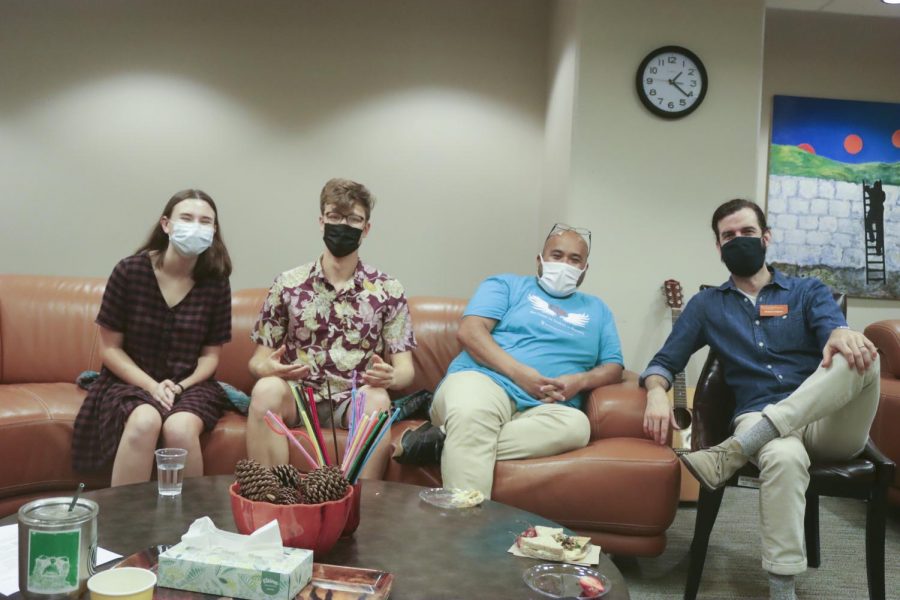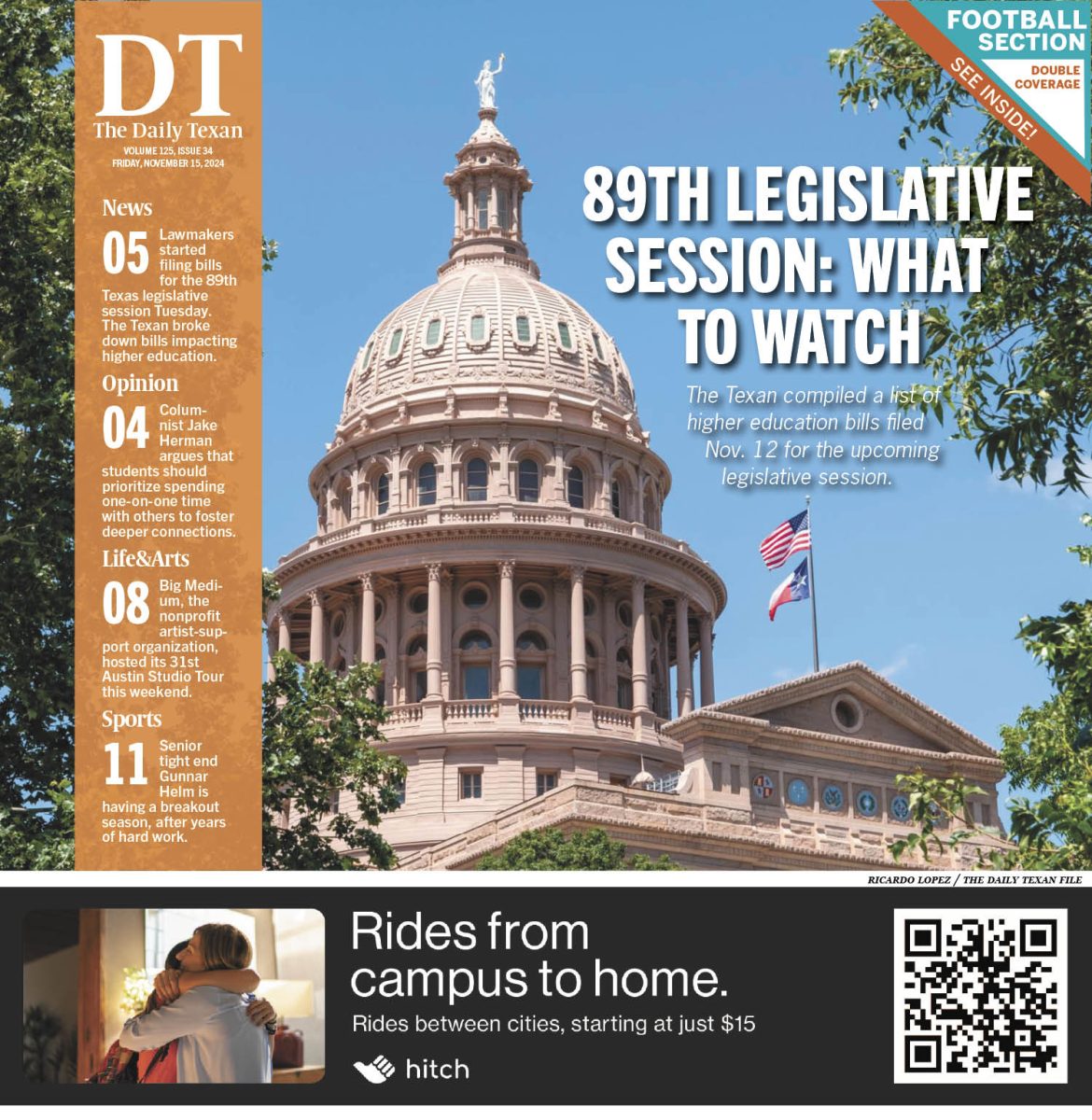Sober students salute Center for Students in Recovery for providing community, flexible paths to recovery
October 6, 2021
Editor’s Note: This article first appeared as part of the October 1 flipbook.
“Ebby” is a pseudonym for a UT student whose identifying details have been changed to protect their anonymity, a central tenet of the Alcoholics Anonymous program.
When Ebby stopped playing for a UT sports team their freshman year, they said their life lost a carefully planned structure. Without the looming 5 a.m. workout wake-up call, they no longer needed to carefully avoid hangovers.
“I would rationalize it, saying, ‘If you had anxiety like I do, you would drink every day, too.’ It all snowballed,” the senior economics major said. “I realized that I didn’t have the ability to choose anymore. (Drinking) just felt like something I had to do to function properly.”
Ebby joined Greek life, and the hard partying atmosphere made it difficult to tell whether their self-medicating drug and alcohol use was normal. After chronic overuse of marijuana caused a psychotic break, the pandemic provided a needed opportunity to commit to recovery. While getting sober in Alcoholics Anonymous over a year ago, they initially struggled to relate in meetings filled with people much older than them.
For many UT students like Ebby, the Center for Students in Recovery provides a supportive place to land right here on campus among their peers. The Center offers a mixed recovery environment for those who utilize it to discuss issues other than alcohol, or to pursue modalities other than the 12 Steps.
Now sober for over a year, Ebby expressed gratitude for the wisdom of Winston Chapman, CSR’s senior student program coordinator.
Chapman says the peer support at CSR serves as the “secret sauce.” Regardless of academic or recovery status, all students are welcome to come and connect over their lived experience coping with addiction.
“We encourage students that are unsure about their recovery status just to come to an event or meeting and enter into a conversation with a staff member or student,” Chapman said. “Through discussion, we can help that person find where they’re at in their journey.”
Students seeking a sober refuge gathered last Friday to participate in CSR’s special Yoga in Recovery event, taught by Zoe Mantarakis, kinesiology assistant professor of practice.
“We’re all in recovery from something,” Mantarakis said. “You could call it recovery, or you could call it yoga, but it’s doing the same work of looking at ourselves being honest, but also in a kind and compassionate way. Making amends, trying to be better, maybe our best self.”
Matarakis said three new people sought recovery resources after the event, including social work graduate student Ashley Villodas.
“Recovery can look different for every single person,” Villodas said. “A lot of people think of church basements and metal chairs with old men. That is not the reality anymore — there are people who are teenagers getting sober and staying sober.”
Villodas took a break during her undergraduate degree to seek treatment, despite feeling resistant to the “addiction” diagnosis. Hurt by people with addiction before who refused to seek help, Villodas forged a different path. She returned to college when her sobriety and mental health were stable.
Villodas said UT’s master program stood out because of the campus CSR program.
“I had actually written about it in my admissions essay, as wanting to be a part of a campus that promoted and supported recovery,” Villodas said.
She said she plans to make trips to the CSR a part of her recovery routine.
“We’ve all heard that the opposite of addiction is connection,” Chapman said. “When you walk into the community room — there’s coffee brewing, there’s music playing, there are leather couches. It feels like a living room, because the living room is where connection happens.”
Mantarakis echoed the value of having a “homey” space, where students can sit on the couch, play board games and hang out without having to make an appointment or get a diagnosis.
According to the CSR website, center staff offer phone, video and in-person appointments, with no barrier to entry. Reach out to [email protected] for more information.
“Nobody has to know much about you,” Mantarakis said. “Just by being there, you are worthy of the support and the care of everyone else who’s there.”





